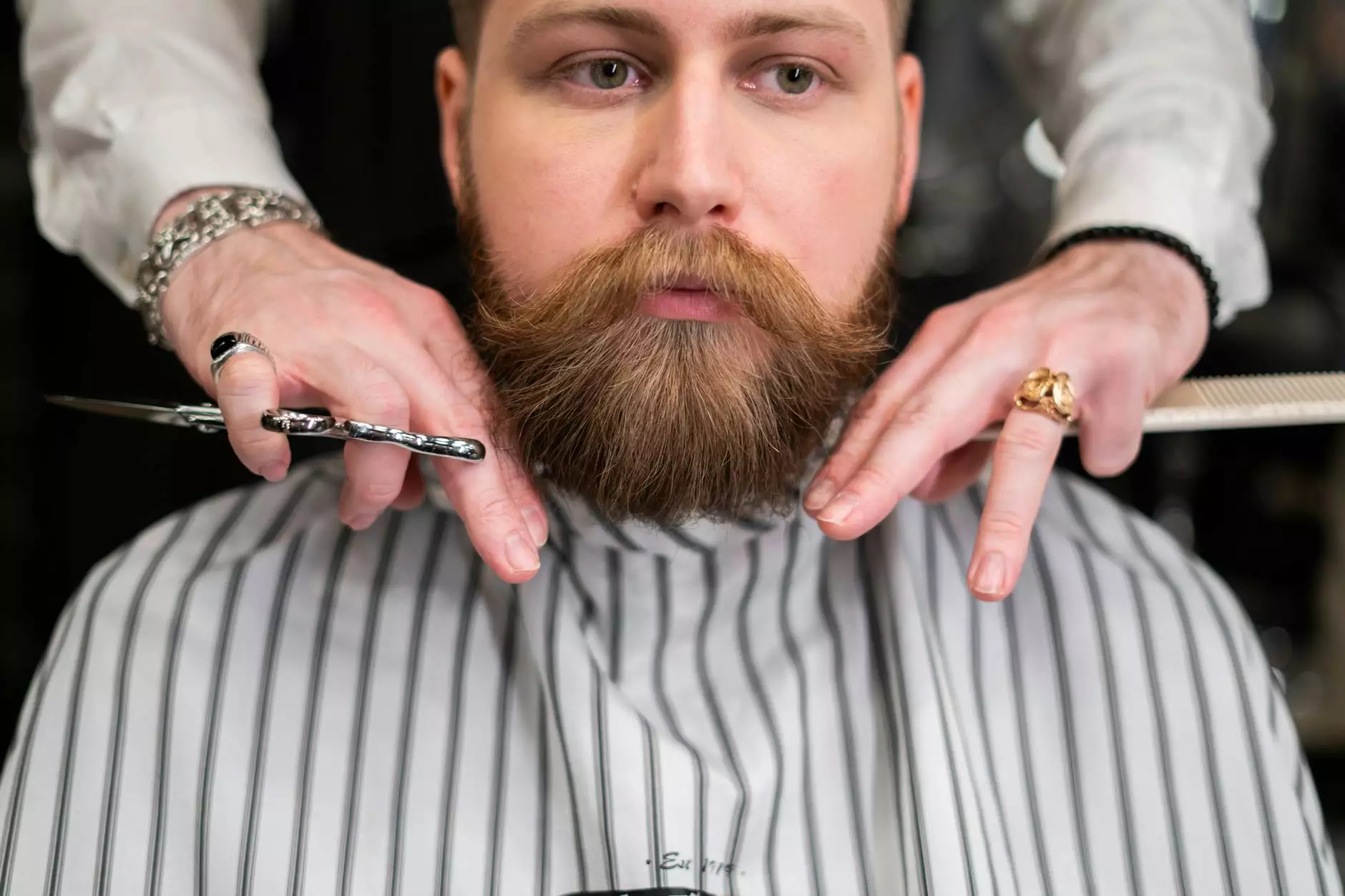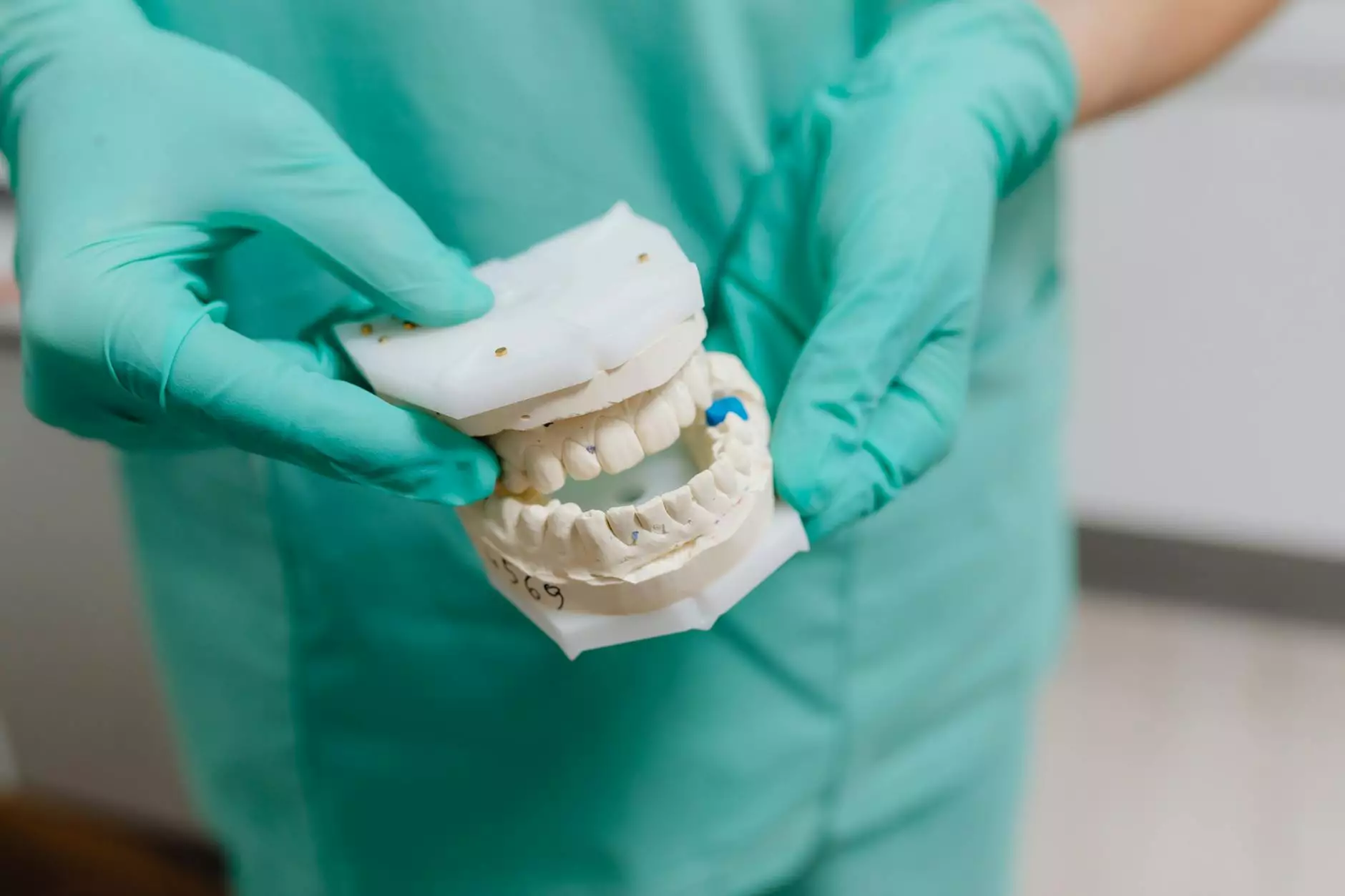Unlocking the Beauty of Your Smile: The Transformative Power of Teeth Veneers

In today's world, where first impressions play a crucial role in personal and professional success, having a radiant smile can significantly impact your confidence and self-esteem. Teeth veneers have emerged as a popular cosmetic dentistry solution for individuals looking to enhance their smiles and address various dental imperfections. This article delves deep into the world of teeth veneers, exploring their types, benefits, maintenance, and more to help you understand why they might be the perfect solution for you.
What Are Teeth Veneers?
Teeth veneers are thin, custom-made shells designed to cover the front surface of your teeth. They are typically constructed from porcelain or composite resin and are bonded to the existing tooth structure. Veneers are an effective way to improve the aesthetic appearance of your teeth, addressing issues such as:
- Crooked or misaligned teeth
- Discolored or stained teeth
- Chipped or worn teeth
- Gaps between teeth
- Irregularly shaped teeth
Types of Teeth Veneers
When considering teeth veneers, it’s essential to understand the different types available to choose the best option that suits your needs:
1. Porcelain Veneers
Porcelain veneers are made from high-quality ceramic material, providing a natural appearance and superior durability. They are stain-resistant and can last for many years with proper care. The process typically involves two visits: one for consultation and preparation, and another for the application.
2. Composite Veneers
Composite resin veneers are made from a tooth-colored composite material and can be applied in a single visit. While they are more affordable than porcelain veneers, they tend to be less durable and may stain over time. Great for minor corrections, they’re ideal for those looking for an economical option.
3. No-Prep Veneers
No-prep veneers, such as Lumineers, require minimal to no tooth reduction. They are ultra-thin and can often be placed directly onto the teeth without preparation, making them a less invasive option. However, they may not provide as dramatic results as traditional veneers.
Benefits of Teeth Veneers
The advantages of obtaining teeth veneers are extensive, offering both functional and aesthetic benefits:
1. Enhanced Aesthetics
The primary benefit of veneers is the significant improvement in the appearance of your smile. They can correct discoloration, reshape teeth, and create a symmetrical smile, instantly boosting your confidence.
2. Durable and Long-Lasting
With proper care, porcelain veneers can last between 10 to 15 years, making them a worthwhile long-term investment in your smile. They resist staining from common food and beverages, allowing you to maintain a bright smile for years.
3. Minimal Tooth Alteration
Compared to other cosmetic procedures, veneers require minimal alteration of the natural tooth structure. This conservative approach preserves the majority of your original teeth while enhancing your smile.
4. Versatility
Veneers can address a variety of dental issues, making them a versatile and effective treatment option for many individuals. Whether you are dealing with chips, gaps, or discoloration, veneers can provide a solution.
5. Quick Results
The process of getting teeth veneers is relatively quick, typically involving only a few dental visits. Patients can achieve their desired results and start enjoying their new smile in a short period.
The Process of Getting Teeth Veneers
Understanding the process of obtaining teeth veneers can help ease any concerns and prepare you for the journey toward a transformed smile:
- Consultation: Your journey begins with a consultation with a cosmetic dentist. During this appointment, discuss your goals, examine your teeth, and create a personalized treatment plan.
- Preparation: The dentist will prepare your teeth by removing a small amount of enamel to ensure a proper fit for the veneers. Impressions or digital scans will be taken to create customized veneers.
- Temporary Veneers: You may be given temporary veneers to wear while your permanent ones are being fabricated in a dental laboratory. This helps protect your teeth and maintain your smile during the waiting period.
- Application: Once the permanent veneers are ready, you will return to the dentist for application. The dentist will carefully bond the veneers to your teeth using strong dental cement and make any necessary adjustments.
- Follow-Up Care: A follow-up appointment may be scheduled to ensure everything is properly placed and fitting well.
Costs Involved with Teeth Veneers
The cost of teeth veneers can vary significantly based on several factors:
- Type of Veneer: Porcelain veneers generally cost more than composite veneers due to their durability and aesthetic appeal.
- Location: The costs can also vary based on the geographical location of your dental practice. Urban centers typically have higher pricing due to increased demand.
- Dentist’s Experience: A highly skilled and experienced cosmetic dentist may charge more for their expertise, but this can often result in better outcomes.
- Insurance Coverage: Most dental insurance plans do not cover cosmetic procedures, so be prepared for out-of-pocket expenses.
Maintenance and Care for Teeth Veneers
To ensure the longevity of your teeth veneers, it is crucial to adopt proper maintenance and care routines:
- Practice Good Oral Hygiene: Brush and floss your teeth regularly. Using a soft-bristle toothbrush and non-abrasive toothpaste can help prevent damage to your veneers.
- Regular Dental Visits: Schedule regular check-ups and professional cleanings to maintain your overall oral health and monitor the condition of your veneers.
- Avoid Hard Foods: Chewing on hard objects or foods can chip or crack veneers. Be mindful of what you eat to protect your investment.
- Wear a Mouthguard: If you grind your teeth at night, consider wearing a mouthguard to protect your veneers from excessive force.
Frequently Asked Questions about Teeth Veneers
1. How long do teeth veneers last?
With proper care, porcelain veneers can last between 10 to 15 years, while composite veneers may last about 5 to 7 years. Regular dental check-ups are essential for maintaining their longevity.
2. Are teeth veneers reversible?
Since the process involves removing a small amount of enamel, veneers are not considered reversible. It is crucial to be fully committed and to discuss all options with your dentist before proceeding.
3. Can veneers be removed?
Yes, veneers can be removed, but doing so will alter the appearance of your teeth since enamel has been removed. If you have concerns, consult with your dentist about your options.
Conclusion
In conclusion, teeth veneers can be a transformative solution for individuals seeking to enhance their smile and rebuild their confidence. With various types available and numerous benefits, they offer both aesthetic improvements and functional advantages. By understanding the process, costs, and necessary maintenance, you can make an informed decision about whether veneers are the right choice for you. Consult with a skilled cosmetic dentist to explore the exciting possibilities awaiting you in your journey toward a brighter, more beautiful smile.
Embarking on the journey of improving your smile is an important decision that holds the potential to affect your life significantly. With the right information and professional guidance, achieving the smile of your dreams is no longer just a fantasy, but an attainable reality.









